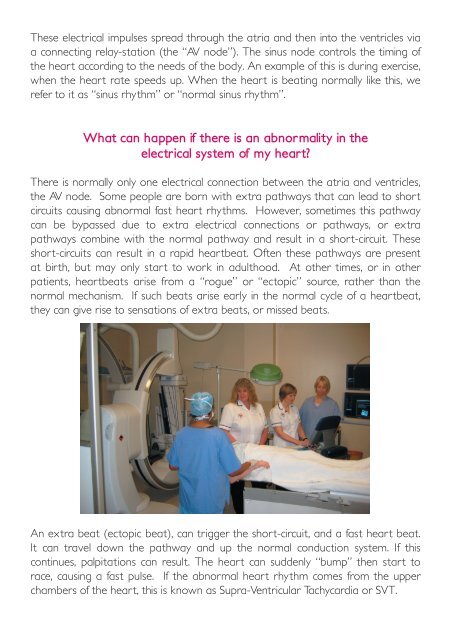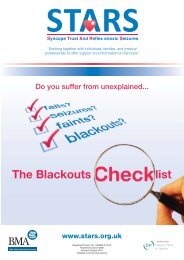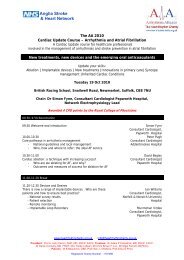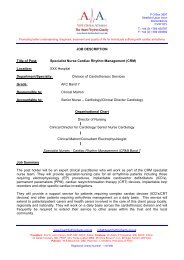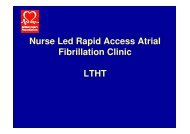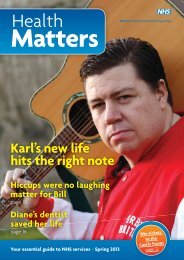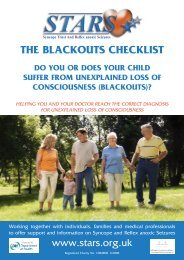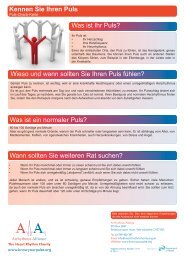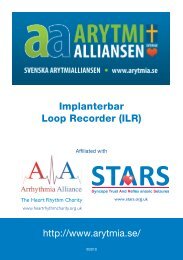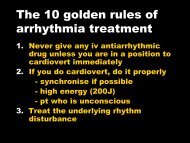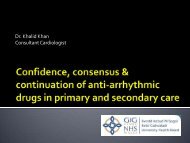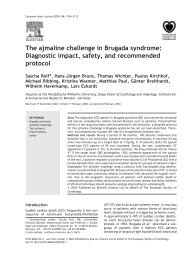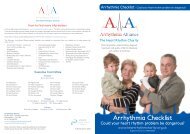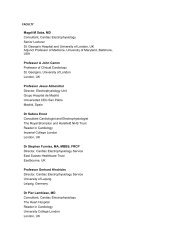Electrophysiology Studies (EPS) - Arrhythmia Alliance
Electrophysiology Studies (EPS) - Arrhythmia Alliance
Electrophysiology Studies (EPS) - Arrhythmia Alliance
You also want an ePaper? Increase the reach of your titles
YUMPU automatically turns print PDFs into web optimized ePapers that Google loves.
These electrical impulses spread through the atria and then into the ventricles via<br />
a connecting relay-station (the “AV node”). The sinus node controls the timing of<br />
the heart according to the needs of the body. An example of this is during exercise,<br />
when the heart rate speeds up. When the heart is beating normally like this, we<br />
refer to it as “sinus rhythm” or “normal sinus rhythm”.<br />
What can happen if there is an abnormality in the<br />
electrical system of my heart<br />
There is normally only one electrical connection between the atria and ventricles,<br />
the AV node. Some people are born with extra pathways that can lead to short<br />
circuits causing abnormal fast heart rhythms. However, sometimes this pathway<br />
can be bypassed due to extra electrical connections or pathways, or extra<br />
pathways combine with the normal pathway and result in a short-circuit. These<br />
short-circuits can result in a rapid heartbeat. Often these pathways are present<br />
at birth, but may only start to work in adulthood. At other times, or in other<br />
patients, heartbeats arise from a “rogue” or “ectopic” source, rather than the<br />
normal mechanism. If such beats arise early in the normal cycle of a heartbeat,<br />
they can give rise to sensations of extra beats, or missed beats.<br />
An extra beat (ectopic beat), can trigger the short-circuit, and a fast heart beat.<br />
It can travel down the pathway and up the normal conduction system. If this<br />
continues, palpitations can result. The heart can suddenly “bump” then start to<br />
race, causing a fast pulse. If the abnormal heart rhythm comes from the upper<br />
chambers of the heart, this is known as Supra-Ventricular Tachycardia or SVT.


